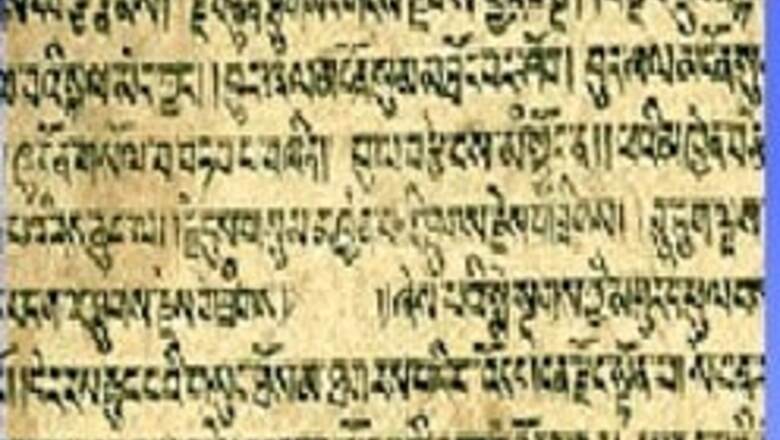
views
New Delhi: In the 60th year of Indian independence, here’s a reason that will make historians swell up with pride.
The medieval Indian manuscripts including the Rig Veda –restricted only to its practitioners till now – have now been selected for inscription in UNESCO's Memory of the World Register, 2007.
While the Rig Veda has been selected from Bhandarkar Oriental Research Institute, Pune, other Indian nominations include the IAS Tamil Medic Manuscript Collection (1997), Archives of the Dutch East India Company (2003), a Dutch nomination, and the Saiva Manuscripts in Pondicherry (2005).
The Vedas are the first literary documents in the history of humankind, and they transcend far beyond their identity as scriptures.
The Rig Veda, oldest of the four Vedas, is among the 38 items of documentary heritage of exceptional value which have been added to the prestigious register, bringing the total number of inscriptions since 1997 to 158.
It is a collection of 1028 hymns of exceptional literary qualities eulogising the Vedic deities and is said to be the source of the Aryan culture.
Culture and Tourism Minister Ambika Soni welcomed the move and said India's cultural heritage “always brought happiness to all the countrymen.â€
The recommendation to include Rig Veda was floated by the International Advisory Committee, which met in Pretoria (South Africa) from June 11 to 15 and was formally accepted by UNESCO Director General Koïchiro Matsuura.
The programme for the Memory of the World was initiated by UNESCO in 1990s to honour significant landmarks in the world’s documentary heritage and have them recorded as world's inheritance.
The Memory of the World programme claims to guard the world against collective amnesia by preservation of the valuable archival holdings and library collections all over the world. These are thereafter made available in the public domain for dissmeniation and awareness.
The National Mission for Manuscripts of the Culture Ministry had submitted the nomination on behalf of the Bhandarkar Oriental Research Institute.
Out of the total number of 28,000 Manuscripts housed at the Bhandarkar Oriental Research Institute, Pune, the 30 manuscripts of the Rig Veda form a valuable part of the collection.
Besides the Rig Veda, the list of 38 items of documentary heritage includes Unpublished Papers of Christopher Okigbo, considered one of the most renowned African poets of the 20th century, killed during the civil war in Nigeria.
Human Rights Documentary Heritage, 1976-1983 (Argentina), The Story of the Kelly Gang (1906-Australia), the world's first feature-length film, and The Convict Records of Australia: written account of the deportation over 80 years (1788-1868) of some 165,000 convicts from the UK, who founded the independent Australian Commonwealth also find a place in this year's entry .
Further, The Tabula Peutingeriana or Peutinger's Table (Australia), the only surviving ancient map depicting the road network of the Roman Empire's public communications service, and Canada's Hudsons Bay Company Archival records, which played a crucial role in Canada's creation, have also been included in the prestigious list.
















Comments
0 comment